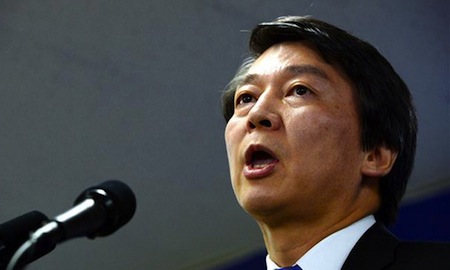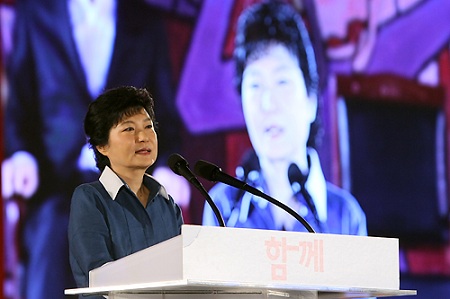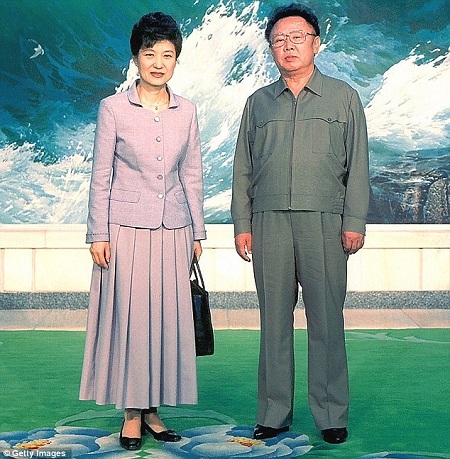South Korea’s presidential elections never feature incumbents — the president is limited to a single five-year term — but that doesn’t mean incumbents don’t feature prominently in presidential elections.![]()
In 2007, Chung Dong-young suffered from his ties to president Roh Moo-hyun, under whose administration Chung served as unification minister, and to some degree, Moon Jae-in, the presidential candidate of the liberal Democratic United Party (민주통합당, or the ‘Minju Tonghap-dang’) and Roh’s former chief of staff.
But given that incumbent president Lee Myung-bak, who will leave office as one of South Korea’s most unpopular presidents, garners approval ratings of around 20%, you’d expect that the candidate of Lee’s Saenuri Party (새누리당 or the ‘Saenuri-dang’), formerly the Grand National Party, would be suffering even more, right?
Wrong. In South Korea’s presidential race this year, one of the reasons that Park Geun-hye has consistently held a lead over Moon has been her successful distancing from the Lee administration (although that lead is narrowing fast, especially after Park made a gaffe in the second presidential debate Monday indicating she wanted to ‘invigorate’ the underground economy).
Moon has consistently attacked Park for her party’s economic record, but the charges have not (so far) erased Moon’s deficit, even after posters surfaced trying to tie the two together as ‘Lee Myung Park Geun-hye.’
If anything, Park has been more successful by hammering away at lingering doubt about the Roh administration and Moon’s ties to it as Roh’s chief of staff.
That’s in part because while Park has attacked Roh’s administration, she’s also shown no compunction in attacking Lee’s record as well:
“The Roh Moo-hyun government wasted a period of prosperity in the world economy by indulging in ideological debates and power struggles, leading to the erosion in working-class living standards. The Lee Myung-bak government put growth before everything and failed to make lives better. I will not be a leader who will repeat the mistakes of previous governments,” Park said at a rally in Seogwipo, Jeju Island.
During the campaign, Park has attacked Lee’s administration for having failed middle class people and for exacerbating income inequality — an issue that both Park and Moon had pledged to make a top priority if elected. Despite the rhetoric, there’s really no indication that Park’s administration would mark a vast policy difference from Lee’s administration. If anything, Korean conservatives are incredibly united behind Park’s candidacy — more so than at any other time since the 1987 election.
But Park has long been known as an intraparty rival of Lee — no one would ever accuse Park of harboring secret affection for Lee or his accomplishments. Continue reading The incredibly shrinking Lee Myung-bak







